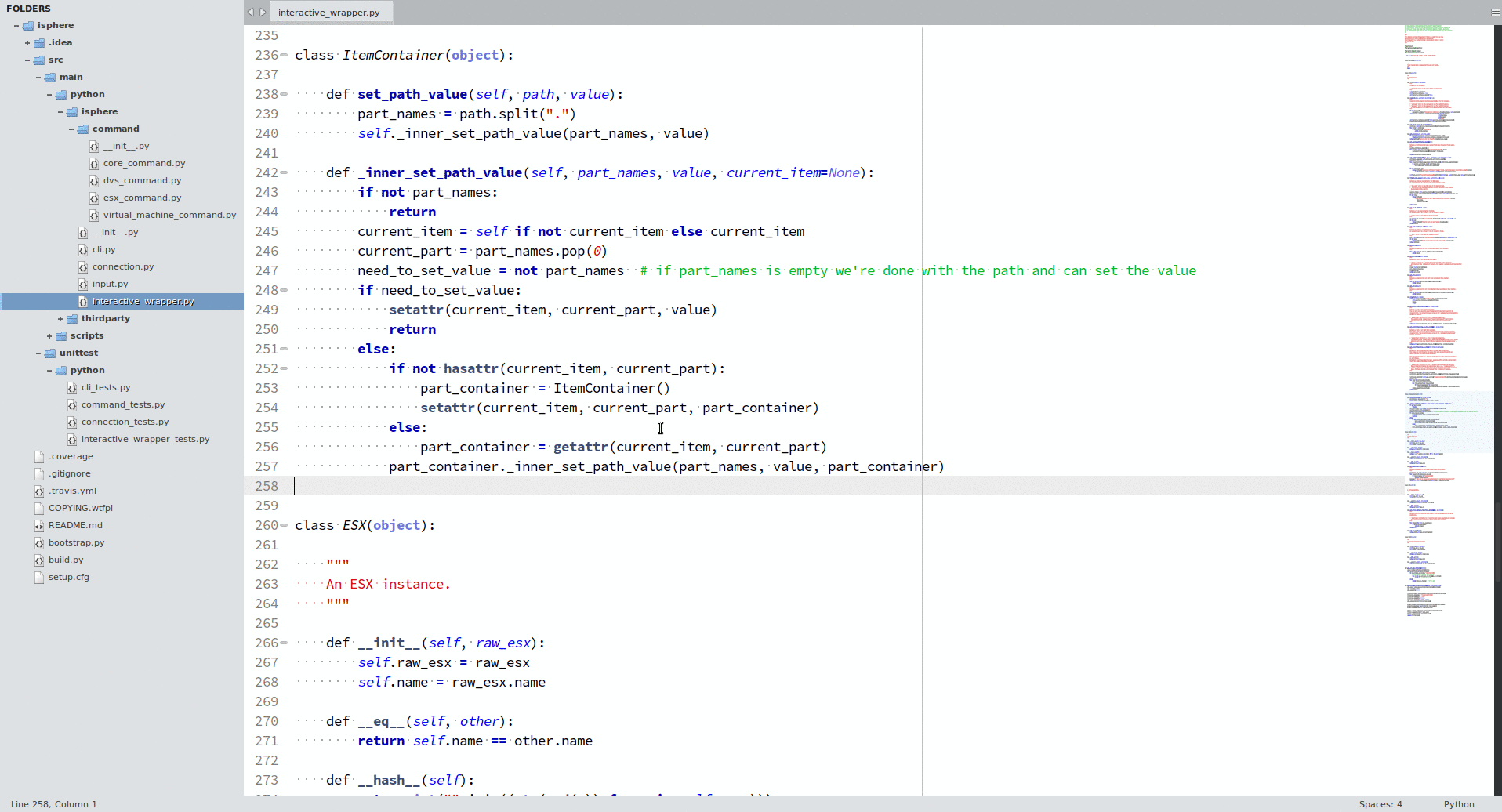PyBuilder
Sublime text 3 plugin for PyBuilder
Details
Installs
- Total 3K
- Win 2K
- Mac 532
- Linux 726
| Feb 21 | Feb 20 | Feb 19 | Feb 18 | Feb 17 | Feb 16 | Feb 15 | Feb 14 | Feb 13 | Feb 12 | Feb 11 | Feb 10 | Feb 9 | Feb 8 | Feb 7 | Feb 6 | Feb 5 | Feb 4 | Feb 3 | Feb 2 | Feb 1 | Jan 31 | Jan 30 | Jan 29 | Jan 28 | Jan 27 | Jan 26 | Jan 25 | Jan 24 | Jan 23 | Jan 22 | Jan 21 | Jan 20 | Jan 19 | Jan 18 | Jan 17 | Jan 16 | Jan 15 | Jan 14 | Jan 13 | Jan 12 | Jan 11 | Jan 10 | Jan 9 | Jan 8 | |
|---|---|---|---|---|---|---|---|---|---|---|---|---|---|---|---|---|---|---|---|---|---|---|---|---|---|---|---|---|---|---|---|---|---|---|---|---|---|---|---|---|---|---|---|---|---|
| Windows | 0 | 0 | 0 | 0 | 0 | 0 | 0 | 0 | 0 | 0 | 0 | 0 | 0 | 1 | 0 | 1 | 0 | 0 | 0 | 0 | 0 | 0 | 0 | 0 | 0 | 0 | 0 | 0 | 1 | 0 | 0 | 0 | 0 | 0 | 0 | 0 | 0 | 0 | 0 | 0 | 0 | 0 | 0 | 0 | 0 |
| Mac | 0 | 0 | 0 | 0 | 0 | 0 | 0 | 0 | 0 | 0 | 0 | 0 | 0 | 0 | 0 | 0 | 0 | 0 | 0 | 0 | 0 | 0 | 0 | 0 | 0 | 0 | 0 | 0 | 0 | 0 | 0 | 0 | 0 | 0 | 0 | 0 | 0 | 0 | 0 | 0 | 0 | 0 | 0 | 0 | 0 |
| Linux | 0 | 0 | 0 | 0 | 0 | 0 | 0 | 0 | 0 | 0 | 0 | 0 | 0 | 0 | 0 | 0 | 0 | 0 | 0 | 0 | 0 | 0 | 0 | 0 | 0 | 0 | 0 | 0 | 0 | 0 | 0 | 0 | 0 | 0 | 0 | 0 | 0 | 0 | 0 | 0 | 0 | 0 | 0 | 0 | 0 |
Readme
- Source
- raw.githubusercontent.com
sublime_pybuilder
Sublime text 3 plugin for PyBuilder.

Features
- Real-time output
- Minimal configuration if you use Anaconda or SublimePythonIDE as it reuses the settings
- Does not block so you can work or check out what to do next while building.
- pyb-init support built-in
Installation
Install it with package control.
Usage
Several commands will be made available to you through the command palette. You can use them to :
- Run PyBuilder (implies default tasks)
- Show the coverage of your project (using PyBuilder)
- Clean your project
- Run unit tests
- Run integration tests
- Analyze (lint, etc.) your project
- Publish your project
- Verify your project
- Run pyb-init on your project
Mandatory configuration
sublime_pybuilder expects two project settings to be present:
python_interpreterThis is the path to your python interpreter. Could be your system python or a virtualenv.project_rootThe root of your project where the build descriptor (build.py) is located.
Here's what your project settings might look like :
{
"folders":
[
{
"follow_symlinks": true,
"path": "/home/mriehl/workspace/yadtshell"
}
],
"settings":
{
"python_interpreter": "/home/mriehl/workspace/yadtshell/venv/bin/python",
"project_root": "/home/mriehl/workspace/yadtshell",
"extra_paths": ["home/mriehl/workspace/yadtshell/src/main/python"]
}
}
I'm using Anaconda so I added the project sources with the extra_paths setting so that autocompletion and goto definition work. It is not necessary for sublime_pybuilder to work.
Special case - only if you want to work on the PyBuilder project itself!
In order to build pybuilder, you need to run a bootstrapping script.
This script must be run with the right python interpreter in order to see your packages.
Thus we need to specify the path to the bootstrapping script additionally with the setting pyb_path.
My settings are:
{
"folders":
[
{
"follow_symlinks": true,
"path": "/home/mriehl/workspace/pybuilder"
}
],
"settings":
{
"python_interpreter": "/home/mriehl/workspace/pybuilder/venv/bin/python",
"pyb_path": "/home/mriehl/workspace/pybuilder/bootstrap",
"project_root": "/home/mriehl/workspace/pybuilder"
}
}
Optional configuration
sublime_pybuilder_output_panel_color_schemecan be set to a color scheme you like (the default is"Packages/Color Scheme - Default/Monokai.tmTheme"). It will be used for the output panel.
